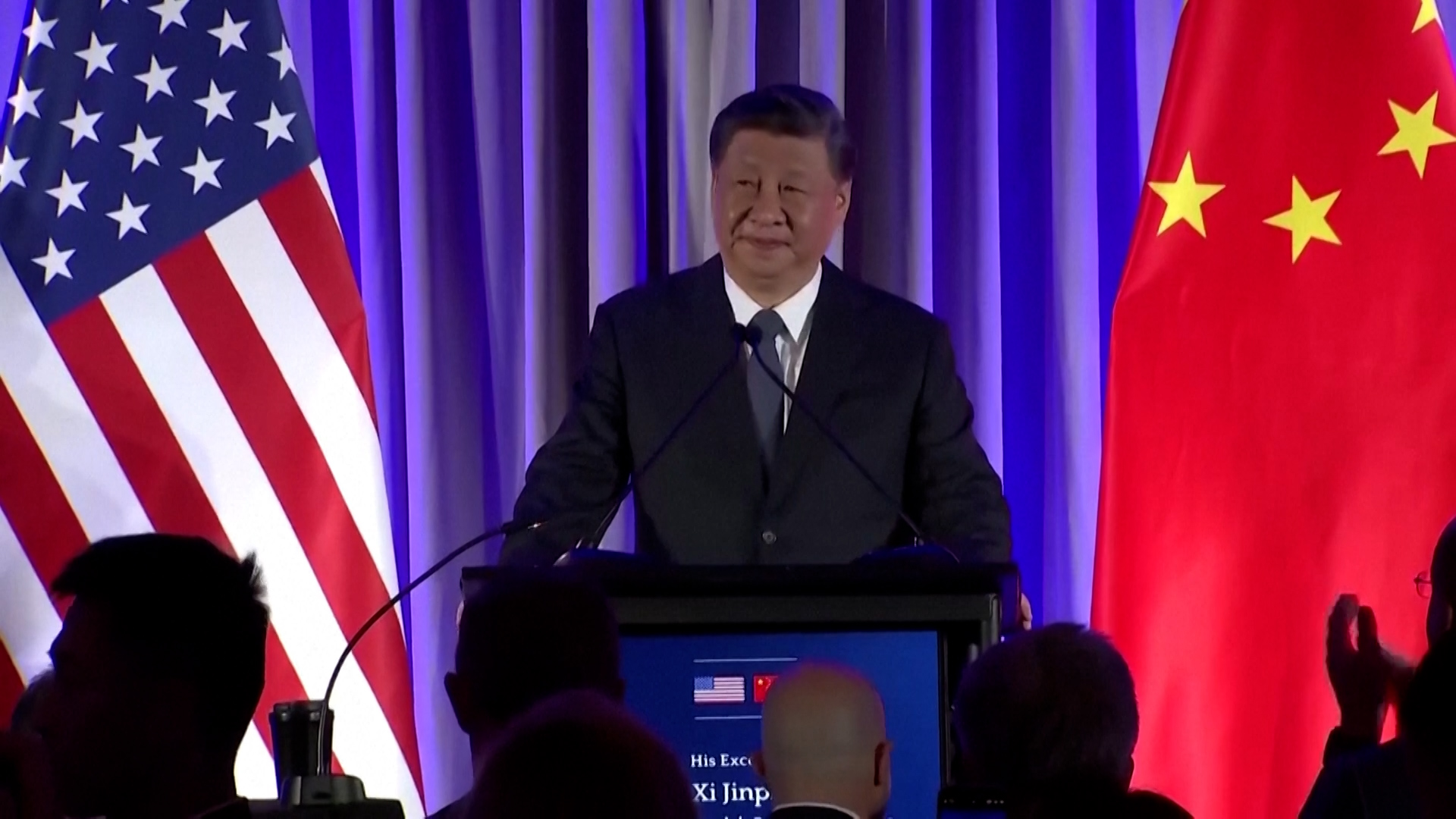At a San Francisco hotel on Wednesday evening, Chinese President Xi Jinping delivered a message to American business that received a big reception: China is a big market and a friend.
Tesla’s Elon Musk, Apple’s Tim Cook and Pfizer’s Albert Borla were at the Hyatt Regency to meet the Chinese leader, eager to sell more electric cars, iPhones and pharmaceuticals in the world’s second-largest economy.
After a day spent in long-awaited talks with US President Joe Biden, Xi told an audience of about 300 people: “China is a big economy and a big market . . . modernization for 1.4 billion Chinese is a big opportunity that China offers to the world.”
“The world needs China and the US to work together for a better future,” he added. China is ready to be an ally and a friend of the United States.
Warm feelings were mutual. “If you look at the list of the top 20 American companies in China, they were all there,” said one San Francisco tech titan who attended the event but did not want to be named. On his way to the Hyatt, Bridgewater founder Ray Dalio told the Financial Times he was “excited to have this relationship.” [with Xi]”.
But while Xi has made efforts to express his country’s open welcome to American business, tensions with Washington, a rocky economic recovery from the pandemic and Beijing’s increasingly assertive domestic security system have dampened enthusiasm among American investors for big bets on China. .

A series of U.S. companies have begun overhauling their supply chains, fearing that geopolitical tensions could disrupt business. Tech groups like Airbnb and Linkedin have retreated from the country, as have consulting firms like Gallup and Forrester Research. Even Apple, which has long relied on Chinese manufacturing, has started placing orders in countries like India and Vietnam.
Business leaders and analysts said they did not expect Xi’s summit with Biden to completely thaw ties. The two presidents agreed to restart military communications and set up an anti-narcotics task force to deal with the influx of fentanyl into the United States, but they left with unresolved issues, particularly tensions over Taiwan.
Myron Brilliant, former head of international relations at the U.S. Chamber of Commerce, said “times have changed” as Chinese officials turned to the playbook to tap the business community for investment and help manage relations with Washington.
“The bottom line is that American business leaders don’t want to get caught up in a chess game between the Chinese and American governments,” Brilliant said. “CEOs are risk averse[and]The situation between China and the US has increased the risk of doing business in China.
Harsh criticism of China by hawkish US politicians has created a more complicated environment for business leaders. Mike Gallagher, chairman of the House China Committee, said on Tuesday it was “unconscionable” for US officials to pay to attend a dinner with Xi, calling for Beijing’s crackdown on Muslim Uighurs in China’s northwestern Xinjiang region and a list of attendees.
A Chinese-American executive at a technology company linking the two countries told the FT his visit was a “state secret”.

Darren Woods, chairman of ExxonMobil, which is building a multibillion-dollar petrochemical plant in southern China, told reporters Wednesday morning that he would not attend the dinner.
“Chinese and US government relations are deteriorating over time,” Woods said. “Both countries are so important to the global world order that some balance cannot be found, although that balance will change.”
Shi Yinhong, an expert on US-China relations at China’s Renmin University, said the two governments’ preoccupation with national security would set a ceiling on relations. “If economic interests conflict with national security, national security will undoubtedly take priority,” Xi said.
China’s increasingly powerful domestic security apparatus has unnerved many foreign businesses, including raids on US consulting firm Bain & Co and the detention of five local employees at due diligence team Mintz. Beijing has banned US group Micron from using chips in critical infrastructure over cyber security risks.
Michael Hart, president of the American Chamber of Commerce in China, said Beijing’s scrutiny of American businesses sends “mixed messages” and that he hopes Xi’s friendly rhetoric will be tempered by bureaucracy.
Hart added that some U.S. groups are pessimistic about the uncertain trajectory of China’s economy, which has been plagued by a sluggish property sector and weak exports. China has struggled to launch strong growth since lifting pandemic restrictions this year. But he said that for many companies, “China is still an important market and a profitable one.”
Beijing “realizes that the private sector is getting very nervous,” said Emily Gilcrease, a technology expert at the CNAS think tank.
Xi sought to reassure US businesses at the dinner that “those concerns of the private sector will continue despite the rhetoric” unless Beijing eases pressure on US multinationals and stops imposing sanctions on foreign executives.
Xi told business leaders in San Francisco: “The primary question for us is, are we enemies or allies?” If the US and China see each other as rivals, he warned, “misguided policymaking will only lead to wrong actions and unwanted decisions.”
Additional by Nian Liu in Beijing
